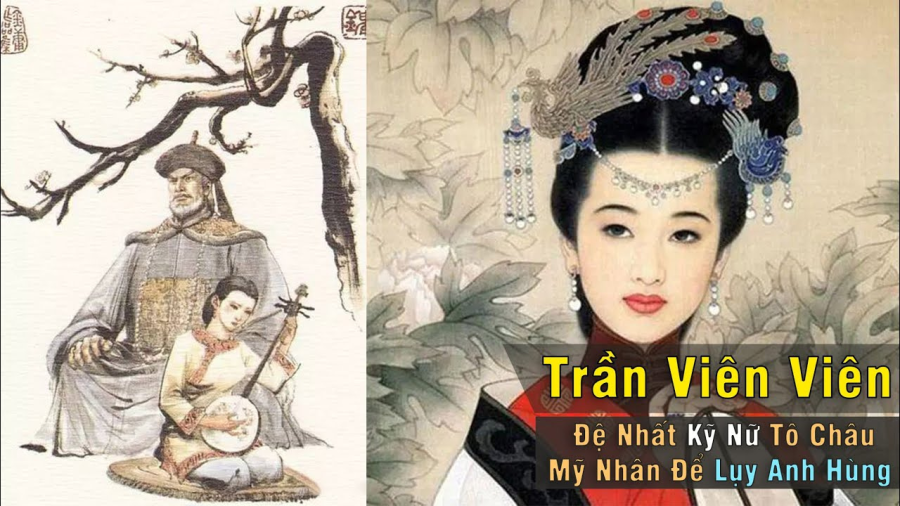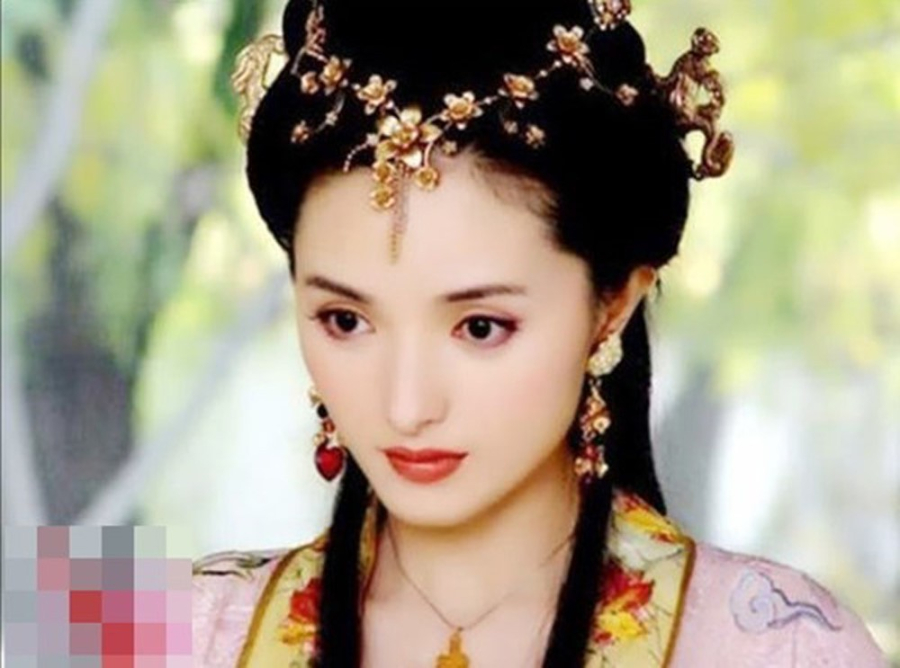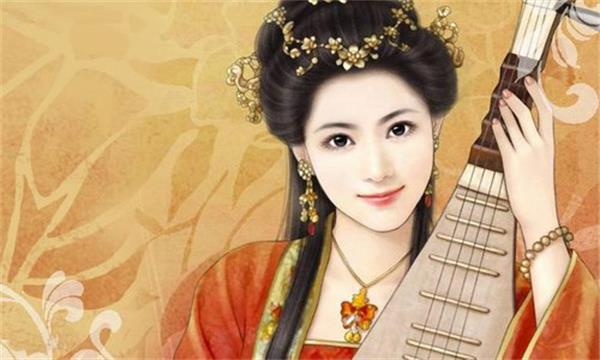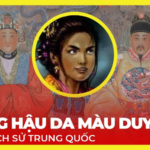In ancient feudal society, women who came from the courtesan class were often looked down upon and considered to be of low status. However, there is a truth that there were many beautiful women and talented ladies who came from the courtesan class. They were not only beautiful and intelligent, but also had many ill-fated love stories.

According to Shine.cn, Tran Vien Vien is now considered one of the 8 most beautiful women in Chinese history. She not only made the Ming Dynasty emperor, Sung Trinh, sleepless, but also had a relationship with the most renowned general at that time, Ngo Tam Que.
Tran Vien Vien’s two controversial relationships led to tragedies that caused the mighty Ming Dynasty to collapse, allowing the Manchu people to invade China and establish the Qing Dynasty.
The first courtesan in Chinese history
Tran Vien Vien was the great beauty during the late Ming Dynasty and the early Qing Dynasty in China. She was born into a poor peasant family with a difficult background.
Her mother passed away shortly after giving birth to her. Her father, who was a small merchant, left the country due to poverty, leaving Vien Vien with her foster aunt. Being orphaned at a young age, Vien Vien grew up using the Tran surname, her aunt’s family name.

It was her aunt’s support that helped Tran Vien Vien develop her skills in music, literature, poetry, and painting – the four highly valued talents in ancient Chinese society, especially for women.
When she reached adulthood, Tran Vien Vien was sold to a famous courtesan institution in Nanjing.
Vien Vien also participated in the play “Room to the West,” which was loved by many people. Many men came to visit Vien Vien daily, but a scholar named Mao Xiang was the luckiest and unluckiest man.
After several encounters in 1641, both of them fell in love, but the chaotic situation at that time forced them to separate. Mao lost track of Vien Vien, and later he found out that the emperor’s father-in-law had purchased Vien Vien to present her to Emperor Ming Tu Tong, according to Mao’s later account.
Once in the palace, every action of Tran Vien Vien was guided by the empress’s plan. However, the empress could not have imagined that with her captivating beauty and talent in dancing and singing, Vien Vien increasingly gained Emperor Ming Tu Tong’s favor. He always kept her by his side, not allowing her to leave even one step.
It was the time when peasant uprisings spread all over, causing heavy losses to the mighty Ming Dynasty, both in terms of military power and talented generals. The uprising led by Li Tu Thanh was the strongest, capturing three major fortresses. At this point, Emperor Ming Tu Tong finally listened to the advice of his advisers and temporarily sent Vien Vien to the residence of Chu Quoc Truong (the king’s father-in-law) so that he could focus on quelling the chaos.
In Chu Quoc Truong’s residence, Vien Vien was once invited to perform music and dance. Her pure beauty caught the attention of the top-ranking general of that time, Ngo Tam Que.
Ngo Tam Que was enchanted by Vien Vien’s beauty and fell deeply in love. Emperor Ming Tu Tong reluctantly granted Vien Vien to Ngo Tam Que and appointed him as the Governor-General of Son Hai Quan, a strategically important position in the border region.
Although loved by Ngo Tam Que, Vien Vien had to remain in the capital city and could not follow her lover to the frontline.
In 1644, the uprising led by Li Tu Thanh successfully captured the capital city, and Ngo Tam Que, who was far away, was not able to return in time for the defense. Emperor Ming Tu Tong fled in failure and was later captured and condemned to death, leading to the collapse of the Ming Dynasty.
Known as Ngo Tam Que, Li Tu Thanh quickly sent someone to intercept Ngo Tam Que on the way to persuade this talented general to serve in the new court.

Causing two Chinese emperors to lose their empire
In 1644, Li Tu Thanh ended the 276-year rule of the Ming Dynasty and proclaimed himself as the Emperor of the Great Yuan, founding the Great Yuan Dynasty.
Ngo Tam Que had already planned to surrender, but when he learned that Li Tu Thanh had seized his beautiful mistress and brought her into the palace, he made a decision that changed the course of Chinese history.
Ngo Tam Que returned to Son Hai Quan, formed an alliance with the Manchus in the north, and opened the city gates to allow the Manchu army to enter China. The new dynasty established by the Manchu people after capturing China was called the Qing Dynasty, ruling for over 300 years.
Nowadays, Ngo Tam Que is regarded by Chinese scholars as a traitor, while Tran Vien Vien is seen as the “Trojan horse”.
But no matter what, both of them contributed to a fundamental change in Chinese history. The love story between Ngo Tam Que and Tran Vien Vien has been widely explored in later Chinese literature and art.
Chinese mainstream historians always consider the courtesan Tran Vien Vien as the culprit who caused the downfall of the Ming Dynasty. However, from another perspective, the collapse of the Ming Dynasty was an inevitable consequence of history.
However, it cannot be denied that Tran Vien Vien, as a rare courtesan in Chinese history, was able to make two consecutive emperors lose their empire to the forces from the north.


































